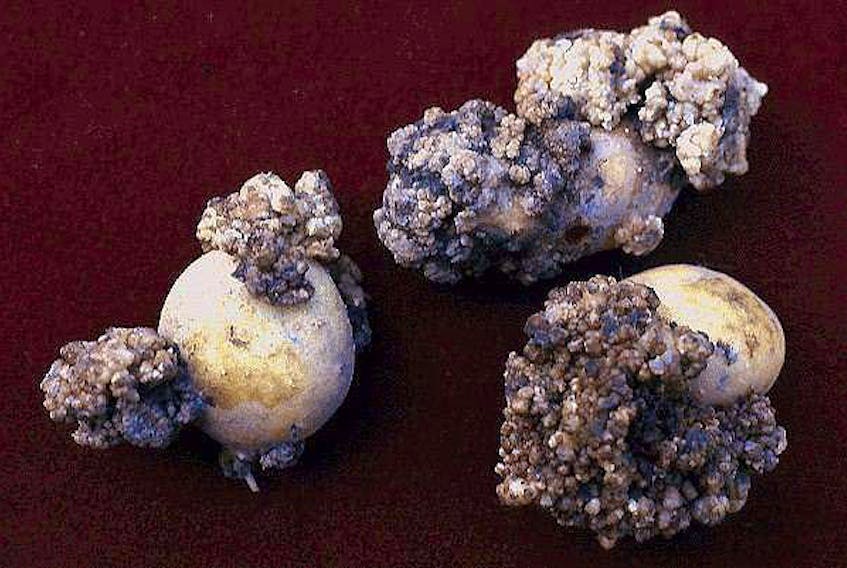A persistent potato pest has reared its head – or its spores — on P.E.I. after a six-year reprieve.
The Canadian Food Inspection Agency (CFIA) confirmed the presence of potato wart (Synchytrium endobioticum) in a pest report issued by the UN’s Food and Agriculture Organization and the International Plant Protection Convention on Nov. 27.
Two fields on a farm in Queens County measuring just over 21 hectares are impacted.
“The detection was found in soil that was collected for routine export testing,” said a statement from the CFIA. “Trace-back/trace-out activities are underway to determine possible sources of the pest.”
As soon as potato wart was diagnosed, CFIA secured the farm to prevent potential spread of the fungus. As of Nov. 20, Canada temporarily stopped export of seed potatoes to the U.S.
In order to provide reassurance to U.S. regulators, Canada suspended phytosanitary certification of seed potatoes from P.E.I. that are destined for the U.S.
This suspension does not apply to tablestock potatoes or potatoes for processing.
CFIA continues to investigate this outbreak by collecting samples from other fields on the farm where potatoes were grown in previous years. Any further testing will be based on the outcome of the investigation.

The infested fields and associated fields have been regulated as per the potato wart domestic long term management plan
Measures including controlling the movement of equipment, tubers, plant material and soil as well as cleaning and disinfecting machinery will be put in place to help prevent spread of potato wart.
The farms that supplied seed potatoes for the infected field were tested and are negative.
Additional finds of potato wart can be expected during an eradication program, said the statement.
Potato wart reduces yield and can make potatoes unmarketable. The soil-borne fungal parasite produces a microscopic spore that infects the tuber, causing an unsightly growth.
The spores can remain viable for up to 30 years and can be found at depths of up to 50 cm. The disease can be spread by infected seed tubers, or in infested soil.
Potato wart is a regulated quarantine pest in Canada. It was first discovered in P.E.I. in 2000. The last time potato wart was diagnosed in P.E.I. was 2014.
The farmer may be eligible for compensation under the Potato Wart Compensation Regulations, enacted in 2003. Costs associated with treatment, prohibition, restriction or disposition related to the pest may be reimbursed, said the CFIA.
Alison Jenkins is a Local Journalism Initiative Reporter. [email protected] @PEIGuardian









